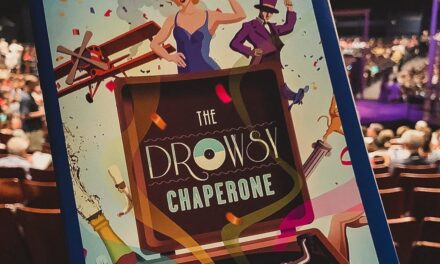After reflecting on the latest material studied in a business communications class, one question continues to plague my mind. Do I listen enough? In my opinion, the answer is no and is a skill and habit I’d like to improve and increase.
Below are three excerpts from the assigned reading material that I believe can be applied to my business and personal life.
Table of Contents
Receive with clarity.
Julian Treasure’s “5 ways to listen better” TED presentation is eye-opening. A man who is passionate about listening while giving valuable tools to listen better.
“RASA stands for receive, appreciate, summarize, and ask.” (Treasure).
The acronym RASA stood out to me as a memorable way to better communicate with family, friends, and business associates as it shares how listening takes active participation and partnership.
It’s essential first to receive and appreciate what your conversation partner is sharing, communicate that you understand by summarizing, and then following up with a question to solidify clarity. This two-way interaction forms a bond that strengthens future communication.
I don’t feel I appreciate enough in conversation, so that’s an area I can improve upon in my daily phone and in-person conversations.
Listening skills are important for success.
“Listening skills are important for career success, organization effectiveness, and worker satisfaction. Numerous studies and experts report that good listeners make good managers and are sought after by recruiters” (Guffey/Loewy, 2018, p.10).
I’m a rewards-driven individual. Any behavior that will lend to a higher quality of life, I tend to pursue. A reminder that recruiters seek good listeners and that good listeners make excellent managers and leaders makes me want to improve my listening skills.
I try and deliver improved effectiveness to clients continually — so it gives me the motivation to know that my interactions with all will improve as I listen more.
Pay attention to the conversation.
An article in The Atlantic is the third piece that had me thinking on ways I can personally improve my listening skills. Listening is enhanced when we’re receiving in a relaxed frame-of-mind and body.
“When you’re water-skiing, you’re paying attention, and if you’re too tense, you’ll fall. All of these activities help us cultivate our capacity for relaxed presence. Mind and body in the same place at the same time.” (Fallows/Stone, 2013, p.22).
Often, I feel we try and force ourselves to listen in different environments, but the act of forcing ourselves to listen causes us to tense up, and place focus elsewhere.
It’s crucial to make sure that when we listen, we are relaxed, so we can fully pay attention to what’s said audibly and visually.
There are many times when I’m listening on the surface, but not fully internalizing or remembering the conversation. It’s easy to be distracted or unrelaxed in some way.
Continue to listen.
In the end and through all reading materials the past two weeks, I’m reminded of how critical listening is to maintaining family relationships and building business rapport.
As someone who works in marketing and communications, I find myself consistently distracted by deadlines and industry chatter. To better organize myself, be better for my clients, and separate what’s important from minutia — I must listen more. Listen to the client, listen to the consumer, and listen to my intuition, even.
In those quiet listening moments, I’ll find the direction needed in business and my personal life.





